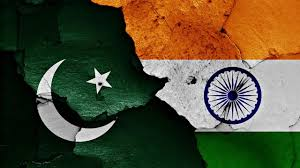Diplomatic Push for Peace Amid Rising Pakistan India Conflict

Tensions between Pakistan and India have reached alarming heights following a deadly incident in the Pahalgam area of Indian-administered Kashmir on April 22, 2025. The attack, which resulted in the deaths of 26 individuals has triggered an escalating cycle of retaliatory measures from both countries. While India has accused Pakistan of being involved in the attack, Islamabad has strongly denied the allegations, calling for a neutral and transparent international investigation into the incident. In the midst of this intensifying crisis, the United States has intervened diplomatically, urging both nations to de-escalate and pursue dialogue to avoid further escalation.
The deadly attack in Pahalgam has sparked outrage in India, leading to accusations against Pakistan. India’s government swiftly accused Pakistan-based militants of carrying out the strike, blaming Islamabad for harboring individuals who allegedly carried out the attack. However, Pakistan has categorically rejected these claims, emphasizing that it had no involvement in the violence. Pakistan’s stance is consistent with its long-held position, calling for objective and impartial investigations into incidents that occur in the disputed region of Kashmir. The Pakistani leadership has also reiterated its commitment to peace, firmly stating that it has no interest in escalating tensions further.
India, in a show of defiance, suspended the 1960 Indus Waters Treaty, which governs the sharing of water from the Indus River system. The treaty has long been a pillar of stability between the two countries, and its suspension has deepened the rift between the nations. In retaliation, Pakistan has closed its airspace to Indian airlines, effectively disrupting regional travel and trade. Additionally, reports of skirmishes and exchanges of fire along the Line of Control (LoC) between the two countries have heightened fears of a broader military conflict.
Given the volatile situation, the United States has made a diplomatic push to mediate and prevent further escalation. The US State Department has urged both countries to exercise restraint and prioritize dialogue. Secretary of State Marco Rubio has expressed a desire to speak with the foreign ministers of both countries to emphasize the need for a responsible resolution to the crisis. The US has expressed support for India in the wake of the attack, but it has refrained from directly criticizing Pakistan, instead advocating for a peaceful and diplomatic solution to the conflict. The US has also called for international cooperation to ensure that both nations engage in meaningful dialogue. The US is urging both Pakistan and India to come to the negotiating table and avoid further military action, which could have devastating consequences for regional security.
Pakistan has expressed its serious concerns over India’s actions and warned that it would not hesitate to respond decisively in the face of any aggression. Deputy Prime Minister and Foreign Minister Muhammad Ishaq Dar has assured the nation that while Pakistan will not initiate conflict, it will act swiftly and forcefully in defense of its sovereignty if provoked. The Pakistani government has also reiterated its demand for an independent, impartial investigation into the attack, emphasizing the need for truth and accountability. Islamabad’s position remains rooted in its desire for a peaceful resolution, with the government calling for diplomatic channels to be pursued to address the situation.
The diplomatic efforts from the US are seen as crucial in preventing a further escalation of the crisis. The involvement of global powers in facilitating dialogue is necessary, given the longstanding history of the conflict. The two countries have fought three wars since their partition in 1947, and the Kashmir issue remains at the heart of the conflict. The US, which has maintained strategic relationships with both Pakistan and India, is in a unique position to encourage dialogue between the two nations. It is hoped that through sustained diplomatic efforts, the region can avoid the catastrophic consequences of another war.
The international community continues to monitor the situation closely, with many countries urging both countries to exercise restraint. In particular, the United Nations has called for a peaceful resolution to the conflict, emphasizing that any military confrontation between the two nuclear-armed countries could have devastating global consequences. Global powers, including the US and China, have expressed concern about the growing tensions and have called on both sides to avoid any actions that could lead to a full-scale war.
The situation on the ground remains tense, with both nations on high alert. Military and diplomatic channels are being actively engaged, but the risk of further violence continues to loom large. The Pakistani military, while maintaining a defensive posture, is prepared for any escalation, while India has expressed its readiness to protect its territorial integrity.
At the heart of the crisis is the disputed region of Kashmir, which has been a source of tension between for decades. Both countries claim the region in its entirety, and the unresolved conflict has been a significant factor in the hostilities between the two nations. The international community recognizes the need for a resolution to the Kashmir issue, but a long-standing lack of political will and the complexity of the conflict have made it difficult to find a lasting solution. The recent attack in Pahalgam is a stark reminder of how volatile the situation remains and how easily tensions can escalate into full-blown conflict.
The next few weeks will be critical in determining the trajectory of India-Pakistan relations. While the US and other international actors are actively involved in pushing for a diplomatic resolution, the willingness of Pakistan and India to engage in meaningful negotiations will ultimately determine whether peace can be achieved or whether the region will face another round of conflict.











